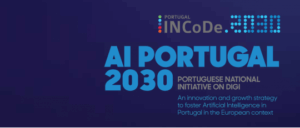How Artificial Intelligence is Transforming Portugal’s Tourism Sector
Portugal’s tourism and hospitality industry stands at the forefront of a technological revolution. As artificial intelligence reshapes global travel experiences, Portuguese hotels, tourism operators, and government initiatives are embracing AI-powered solutions to enhance guest satisfaction, streamline operations, and maintain competitive advantages in an increasingly digital marketplace. This transformation is part of the broader digital transformation Portugal is experiencing across all sectors.

The integration of AI technologies across Portugal’s tourism sector has accelerated dramatically, particularly following the pandemic’s transformative impact on travel behaviors and expectations. From sophisticated chatbots handling multilingual customer inquiries to predictive analytics optimizing hotel pricing strategies, AI implementation has become essential for businesses seeking to thrive in Portugal’s evolving tourism landscape. The Portugal Tech Hub has been instrumental in supporting these technological advancements.
The Current State of AI Adoption in Portuguese Tourism
Portugal’s tourism industry has demonstrated remarkable adaptability in embracing artificial intelligence technologies. According to recent industry reports, the travel and leisure sector has emerged as one of the most active adopters of AI solutions, fundamentally changing how businesses interact with travelers and manage their operations. This adoption is supported by comprehensive technology solutions in Portugal that help businesses navigate the digital transformation journey.
The Portuguese government’s commitment to digital transformation, exemplified through the AI Portugal 2030 strategy and the broader Portugal Digital initiative, has created a supportive ecosystem for AI innovation in tourism. This national framework positions Portugal as a leader in applying artificial intelligence to enhance tourist experiences while promoting sustainable tourism practices.

Hotels across Portugal are implementing AI-driven solutions at unprecedented rates, with establishments ranging from boutique properties to major international chains investing in intelligent systems. The Yotel Porto exemplifies this trend with its smart beds, robotic room service, and mobile applications that enable seamless check-ins and room controls. Similarly, prestigious hotel groups like Dorchester Collections have leveraged AI to analyze thousands of guest reviews, extracting valuable insights that inform service improvements and menu adjustments.
The rapid adoption reflects a fundamental shift in tourist expectations. Modern travelers demand instant responses, personalized experiences, and frictionless service delivery – requirements that AI technologies are uniquely positioned to fulfill. Portuguese tourism businesses recognize that meeting these expectations is no longer optional but essential for survival in a competitive global market.
Key AI Applications Revolutionizing Portuguese Hotels

Intelligent Virtual Assistants and Chatbots
The deployment of AI-powered chatbots represents one of the most visible transformations in Portugal’s hospitality sector. These sophisticated virtual assistants operate around the clock, handling guest inquiries in multiple languages and managing routine requests with remarkable efficiency. Unlike traditional customer service models, AI chatbots can simultaneously assist hundreds of guests, providing instant responses to questions about amenities, local attractions, and booking modifications.

Portuguese hotels are implementing advanced chatbot solutions that go beyond simple FAQ responses. These systems utilize natural language processing to understand context and intent, enabling more nuanced conversations with guests. The Confederation of Tourism of Portugal has highlighted how these technologies address critical labor shortages while maintaining high service standards, particularly during peak tourist seasons.
The sophistication of modern chatbots extends to their ability to learn from interactions, continuously improving their responses based on guest feedback and conversation patterns. This adaptive capability ensures that virtual assistants become more valuable over time, developing deeper understanding of common guest needs and preferences specific to each property.
Automated Revenue Management Systems
AI-driven revenue management has revolutionized how Portuguese hotels optimize their pricing strategies. These intelligent systems analyze vast amounts of data – including historical booking patterns, competitor rates, local events, weather forecasts, and economic indicators – to dynamically adjust room prices in real-time.
The impact on profitability has been substantial. Hotels using AI-powered revenue management report significant improvements in occupancy rates and average daily rates. These systems can detect subtle demand patterns that human revenue managers might miss, such as the correlation between specific weather conditions and booking behaviors or the impact of social media mentions on local demand.
Portuguese hospitality businesses are discovering that AI revenue management extends beyond simple price optimization. These systems provide comprehensive insights into market positioning, helping hotels identify new customer segments and develop targeted marketing strategies. The ability to predict demand with greater accuracy also enables more efficient resource allocation, from staffing decisions to inventory management.
Personalization at Scale
Artificial intelligence enables Portuguese hotels to deliver personalized experiences that were previously impossible at scale. By analyzing guest data – including past stays, preferences, and behaviors – AI systems create detailed guest profiles that inform every aspect of the hospitality experience.

This personalization manifests in numerous ways throughout the guest journey. Pre-arrival communications can be tailored based on the purpose of travel, with business travelers receiving information about meeting facilities while leisure guests get recommendations for local attractions. During stays, AI systems can adjust room settings automatically, suggest relevant services, and even predict guest needs before they’re explicitly expressed. Companies specializing in innovation services Portugal are helping hotels implement these sophisticated personalization systems.
The technology’s ability to process and act on vast amounts of data in real-time means that personalization can be both immediate and contextual. For instance, if a guest frequently orders room service at specific times, the AI system might proactively suggest menu items or offer to place advance orders. This anticipatory service creates memorable experiences that drive guest loyalty and positive reviews.
Operational Excellence Through AI Integration

Predictive Maintenance and Energy Optimization
Portuguese hotels are leveraging AI to transform their operational efficiency through predictive maintenance systems. These intelligent platforms monitor equipment performance continuously, analyzing patterns that indicate potential failures before they occur. By predicting maintenance needs, hotels can schedule repairs during low-occupancy periods, minimizing guest disruption while reducing emergency repair costs.
Energy management represents another crucial application area. AI systems optimize heating, cooling, and lighting based on occupancy patterns, weather conditions, and guest preferences. Hotels report energy savings of up to 25% through intelligent automation, contributing to both cost reduction and sustainability goals – a critical consideration given Portugal’s commitment to environmental protection in tourism. Portuguese tech solutions providers are at the forefront of developing these energy-efficient AI systems.
The integration of Internet of Things (IoT) devices with AI creates smart hotel environments where systems communicate and coordinate automatically. For example, when a guest checks out, the AI system can immediately adjust room temperature to energy-saving levels, schedule cleaning, and update inventory systems – all without human intervention.
Streamlined Check-in and Security Processes
Facial recognition and AI-powered identity verification systems are revolutionizing the check-in experience at Portuguese hotels. These technologies enable contactless check-ins, reducing wait times and enhancing security. Guests can complete registration processes through mobile apps before arrival, with AI systems verifying documentation and preparing room access automatically.
The security benefits extend beyond convenience. AI-powered surveillance systems can detect unusual patterns or behaviors, alerting staff to potential security concerns while respecting guest privacy. These systems have proven particularly valuable in maintaining safety protocols while minimizing intrusive security measures that might detract from the hospitality experience.
Intelligent Staff Allocation
AI algorithms analyze historical data, booking patterns, and real-time occupancy to optimize staff scheduling. This ensures adequate coverage during peak periods while avoiding overstaffing during quieter times. The technology considers factors like employee skills, preferences, and labor regulations to create schedules that balance operational needs with staff well-being.
Portuguese hotels using AI-driven workforce management report improved employee satisfaction alongside operational efficiency. By reducing scheduling conflicts and ensuring fair distribution of shifts, these systems contribute to lower turnover rates – a significant benefit in an industry often challenged by staffing instability. Organizations seeking to implement such systems can get in touch with technology providers who understand the unique needs of the hospitality sector.
The Portuguese Tourism Ecosystem and AI

Government Initiatives and Support
Portugal’s national AI strategy, AI Portugal 2030, provides crucial framework support for tourism sector innovation. The strategy emphasizes education, qualification, and research, ensuring that the workforce develops necessary skills to leverage AI technologies effectively. This comprehensive approach addresses not just technology adoption but also the human elements essential for successful AI implementation.
The establishment of Digital Innovation Hubs and the AI4PA (Artificial Intelligence for Public Administration) initiative demonstrates the government’s commitment to fostering AI adoption across sectors, including tourism. These programs provide resources, training, and collaborative platforms where tourism businesses can access AI expertise and development support.
Integration with Smart Tourism Initiatives
Portuguese cities and regions are developing smart tourism platforms that leverage AI to enhance visitor experiences while managing tourism flows more effectively. These systems analyze data from multiple sources – including mobile phone signals, social media, and IoT sensors – to understand tourist movements and preferences in real-time.
This intelligence enables destinations to manage overtourism challenges proactively. AI algorithms can predict crowding at popular attractions and suggest alternative sites or optimal visiting times. This not only improves visitor satisfaction but also helps distribute tourism benefits more evenly across communities, supporting sustainable tourism development goals.
Collaboration Between Academia and Industry
Portugal’s universities and research centers are actively collaborating with tourism businesses to develop innovative AI applications. These partnerships accelerate technology transfer from laboratories to practical implementations, ensuring that Portuguese tourism remains at the forefront of innovation.
Research initiatives focus on areas like natural language processing for multilingual support, computer vision for enhanced guest services, and machine learning for demand prediction. The involvement of academic institutions ensures that AI implementations are grounded in solid research while addressing real-world industry challenges. This collaborative approach exemplifies the strength of the Portuguese innovation ecosystem in driving technological advancement.
Challenges and Considerations
Balancing Technology with Human Touch
While AI brings tremendous efficiency gains, Portuguese hospitality businesses must carefully balance automation with the personal service that defines memorable travel experiences. The challenge lies in using AI to enhance rather than replace human interactions, ensuring that technology serves to free staff for more meaningful guest engagements.
Successful implementations recognize that AI excels at handling routine tasks and data analysis, allowing human staff to focus on creative problem-solving, emotional support, and cultural exchange – elements that remain irreplaceably human. This complementary approach maximizes the benefits of both technological efficiency and personal warmth.
Data Privacy and Security Concerns
The extensive data collection required for effective AI implementation raises important privacy considerations. Portuguese tourism businesses must navigate complex regulatory requirements, including GDPR compliance, while maintaining the data access necessary for personalized services.
Building guest trust requires transparent communication about data usage and robust security measures. Hotels must invest in secure data infrastructure and clear privacy policies that explain how AI systems use guest information to enhance experiences while protecting personal privacy.
Skills Development and Workforce Adaptation
The rapid adoption of AI technologies creates an urgent need for workforce development. Tourism professionals must acquire new skills to work effectively alongside AI systems, understanding both the capabilities and limitations of these technologies.
Portugal’s focus on education and training through initiatives like INCoDe.2030 addresses this challenge systematically. By providing accessible training programs and continuous learning opportunities, the country ensures that its tourism workforce can adapt to and benefit from AI integration rather than being displaced by it.
Future Perspectives and Emerging Trends
Next-Generation Guest Experiences
The future of AI in Portuguese tourism promises even more sophisticated applications. Virtual and augmented reality powered by AI will create immersive pre-arrival experiences, allowing guests to explore destinations and accommodations virtually. These technologies will extend beyond marketing tools to become integral parts of the travel experience, offering virtual tours, historical recreations, and interactive cultural experiences.
Voice-activated AI assistants will become ubiquitous in hotel rooms, understanding natural language commands in multiple languages and dialects. These systems will go beyond simple room controls to serve as knowledgeable local guides, restaurant recommendation engines, and personal travel planners.
Sustainable Tourism Through AI
Artificial intelligence will play an increasingly critical role in promoting sustainable tourism practices. AI systems will optimize resource usage across entire destinations, from water and energy management to waste reduction and transportation efficiency. Predictive models will help tourism planners understand and mitigate environmental impacts before they occur.
The ability to analyze complex environmental data and tourist behavior patterns will enable more effective conservation efforts. AI can help balance tourism economic benefits with environmental protection, ensuring that Portugal’s natural and cultural treasures remain preserved for future generations.
Integration with Emerging Technologies
The convergence of AI with other emerging technologies will create new possibilities for Portuguese tourism. Blockchain integration will enable secure, transparent booking systems and loyalty programs. Quantum computing will dramatically enhance AI’s ability to process complex optimization problems, from route planning to resource allocation.
5G networks will enable real-time AI applications that were previously impossible, from instantaneous language translation to augmented reality navigation systems. These technological synergies will create seamless, intelligent travel experiences that adapt continuously to guest needs and preferences.
Conclusion
Artificial intelligence has transitioned from an experimental technology to an essential component of Portugal’s tourism and hospitality industry. The successful integration of AI solutions across hotels, tourism operators, and destination management demonstrates Portugal’s commitment to innovation and excellence in tourist services.
As the technology continues to evolve, Portuguese tourism businesses that embrace AI thoughtfully – balancing efficiency with humanity, personalization with privacy, and innovation with tradition – will find themselves well-positioned to thrive in an increasingly competitive global market. The journey toward fully AI-integrated tourism has begun, and Portugal is charting a course that others will likely follow. For businesses ready to embark on this transformation, technology provider Portugal partners stand ready to guide the way.
